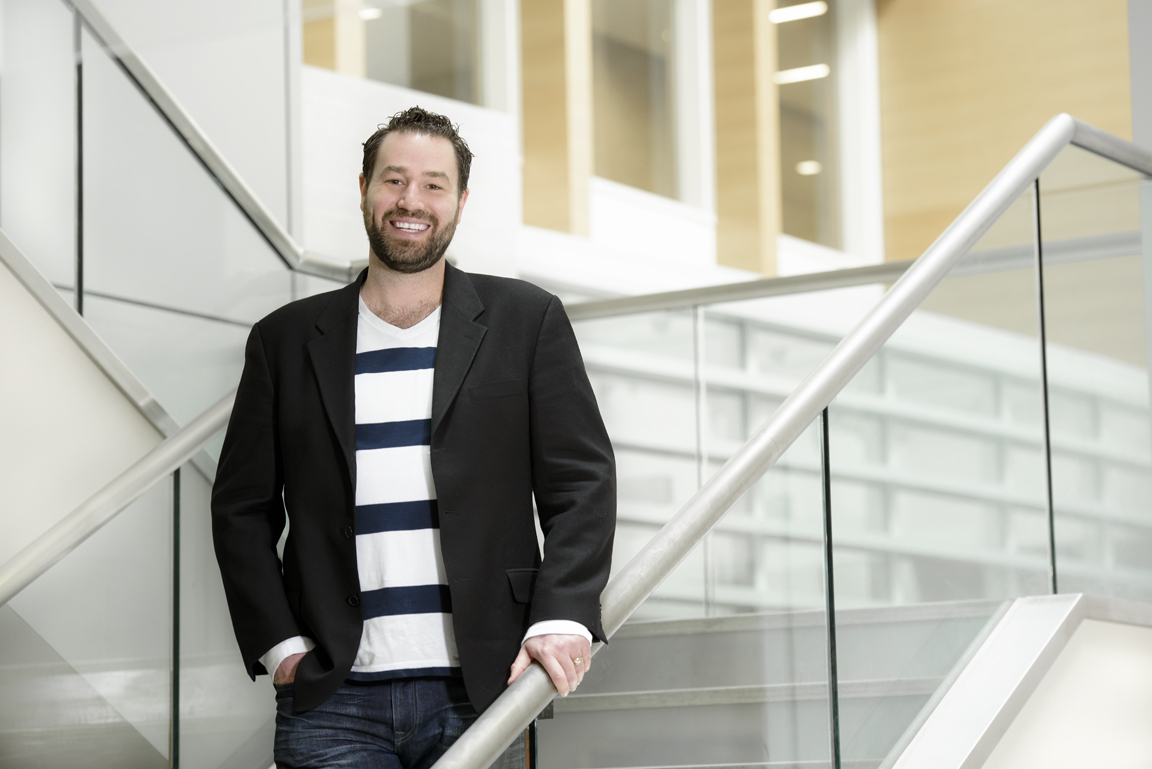
U of C announces new Mental Health Initiative for Stress and Trauma program
By Zarwareen Khan, March 27 2023—
Dr. Matthew Hill, a University of Calgary cell anatomy, biology and psychiatry professor at the Cumming School of Medicine and the Hotchkiss Brain Institute, will be the first chair for the new Mental Health Initiative for Stress and Trauma (MIST) program.
Hill is the deputy director of the Mathison Centre for Mental Health Research and Education. Since his undergrad, his research has been related to stress for around 20 years now, and currently, is focused on the impact of stress hormones in terms of developing mental illnesses in regards to the endocannabinoid system.
“The endocannabinoid system is the brain’s version of cannabinoids, like THC from cannabis in a similar way that, like endorphins, are kind of the brain’s version of opiates. So our brain makes its own molecules that are similar to THC and act on the same receptors that THC does,” Hill said.
His research focuses on understanding the stress-buffering components of this system and how it calms down neural circuits in the brain that are involved in generating anxiety.
In terms of stress-related psychiatric illnesses, Hill has done a lot of work in understanding if there are alterations in the way an individual’s endocannabinoid system functions. Ultimately, he aims to determine if drugs which target the endocannabinoid function might be a novel therapeutic treatment approach for stress-related psychiatric diseases.
Hill described how the MIST initiative was created in order to fill in the gap between the relationship between head trauma, such as a concussion or brain injury, and its subsequent development on mental health, or the impact of stress on the symptoms and recovery of head traumas. This program was created in memory of Mike McClay who passed away in October of 2021 due to suicide after having experienced a concussion from falling off a ladder.
“The MIST chair was developed with that in mind, and the idea behind it is to promote research in this area because it’s just one of these niches in medicine and science that just does not have much attention to it,” said Hill. “This is an intersectional area of research that has not had a lot of attention, yet clearly has a kind of clinical need to understand it better.”
Hill emphasized that mental health issues due to head trauma are often neglected as this research is not studied much.
“The system with how it is right now, there’s not a lot of options for exactly how to approach and treat some of those mental health outcomes, particularly in the context of things like stress and depression, which can create a significant burden for individuals during kind of a post-concussive period,” he said. “Most people who study concussion study concussion purely from a brain damage and inflammation perspective, not in the context of the mental health outcomes.”
In terms of the future development of the MIST program, Hill explained how the short-term goals are focused on understanding the impact of concussions on biological stress systems from a scientific perspective.
“That would also advance into some kind of basic science questions we could ask in human populations looking at neuroimaging and stress challenges of individuals who suffered from a concussion,” he said. “To understand if the way that their brain process is altered or different in any way following a concussion.”
Furthermore, the long-term goals of this research would be to develop clinical interventions that would benefit both a patient’s post-concussion symptoms and mental health symptoms.
“The idea would be to try and create clinical trials to intervene and see if novel approaches using repurposing drugs that we know already exist or approaches like neurostimulation, for example, which is something we have a lot of strengths at here at the University of Calgary,” said Hill.
“Hormones like growth hormone or using approaches like the psychedelic interventions, is kind of a new thing that’s happened in the clinical world in the last few years.”
For more information about Hill and the MIST program in terms of head trauma and mental health research, visit the U of C website.
